Basil cheese is a fresh cheese (typically mozzarella, burrata, or cream cheese) infused with finely chopped or pureed fresh basil leaves. Unlike regular cheese, it delivers immediate herbal flavor without cooking, making it perfect for cold dishes, finishing touches, and recipes where heat would destroy delicate herb aromas. This guide explains exactly how to use it properly, why it works scientifically, and 7 practical techniques that transform everyday meals.
Table of Contents
- What Exactly is Basil Cheese? (Simple Definition)
- Why It's Better Than Adding Basil Separately
- Top 7 Practical Tips to Use Basil Cheese Correctly
- Science Behind Basil Cheese Flavor (Without Heat)
- Basil Cheese vs. Regular Cheese: Visual Comparison
- 3 Easy Recipes Using Basil Cheese
- Why Home Cooks Should Keep Basil Cheese Handy
- Frequently Asked Questions
What Exactly is Basil Cheese? (Simple Definition)
Basil cheese is exactly what it sounds like: regular cheese blended with fresh basil. The most common types are:
- Mozzarella basilica: Fresh mozzarella mixed with basil (common in Italian cooking)
- Burrata with basil: Cream-filled burrata blended with basil leaves
- Chevre basil: Goat cheese mixed with fresh basil
- Cream cheese basil spread: Soft cheese blended with basil for dips and spreads
The key difference from just adding basil to dishes: the cheese preserves basil's volatile flavor compounds (like linalool) that normally evaporate quickly when exposed to air. This creates longer-lasting flavor without needing heat.
Why It's Better Than Adding Basil Separately
You don't need heat to get strong basil flavor when using basil cheese. Three scientific reasons why it works better than adding fresh basil:
- Fat Carries Flavor: Cheese fat binds to basil's oil compounds, preventing them from evaporating quickly
- Controlled Release: The cheese matrix slowly releases basil flavor as you eat (unlike fresh basil which gives one quick burst)
- No Wilting Needed: Regular basil loses flavor when cooked, but basil cheese maintains its taste even in warm dishes
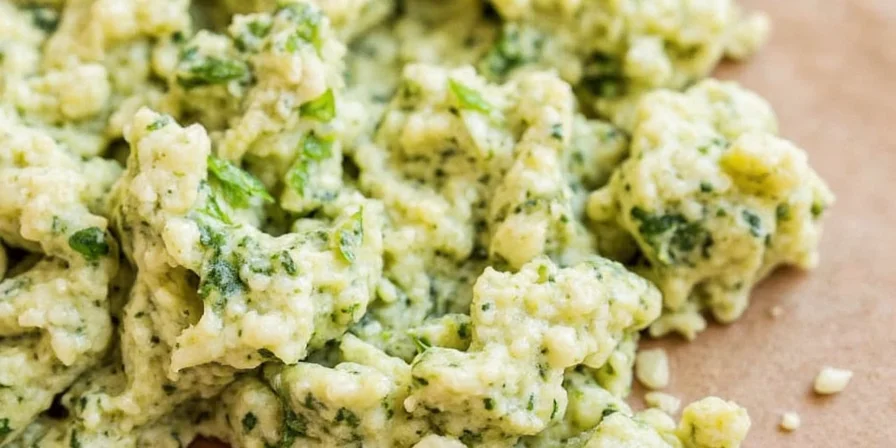
Top 7 Practical Tips to Use Basil Cheese Correctly
- Use it cold for sandwiches: Basil cheese melts poorly. For caprese sandwiches, use it chilled for clean slices that don't turn into a mess.
- Add at the end for pasta: Toss cubed basil cheese into hot pasta OFF the heat. The residual warmth softens it without melting completely.
- Make instant pesto: Blend 4 oz basil cheese with 2 tbsp olive oil for quick pesto (no nuts or garlic needed).
- Top roasted vegetables: Crumble over veggies during the last 5 minutes of cooking - the warmth softens it while preserving fresh flavor.
- Stuff chicken breasts: Roll thin chicken cutlets around basil cheese before cooking for flavor-packed protein.
- Fix bland mashed potatoes: Whisk 2-3 tbsp crumbled basil cheese into warm potatoes just before serving.
- Store properly: Keep in olive oil in an airtight container for up to 5 days (prevents browning from oxidation).
Science Behind Basil Cheese Flavor (Without Heat)
Unlike spices that need heat to release flavor, basil cheese works through chemistry:
- Fat Solubility: Basil's flavor compounds dissolve in cheese fat, preventing evaporation
- Room Temperature Activation: Linalool (basil's main flavor compound) becomes most aromatic at 68-77°F (20-25°C)
- Texture Matters: Small basil pieces in cheese create flavor pockets that release gradually
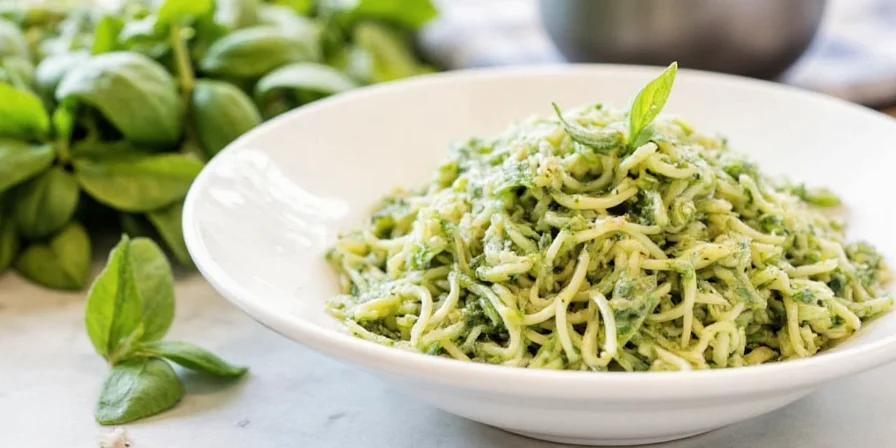
Basil Cheese vs. Regular Cheese: Visual Comparison
| Feature | Basil Cheese | Regular Cheese |
|---|---|---|
| Flavor Release | Gradual (30-60 seconds) | Immediate |
| Best Temperature | Room temperature | Room temp or melted |
| Shelf Life | 5-7 days | Weeks to months |
| Color | Green flecks throughout | Uniform color |
| Primary Use | Finishing/cold applications | Cooking/melting |
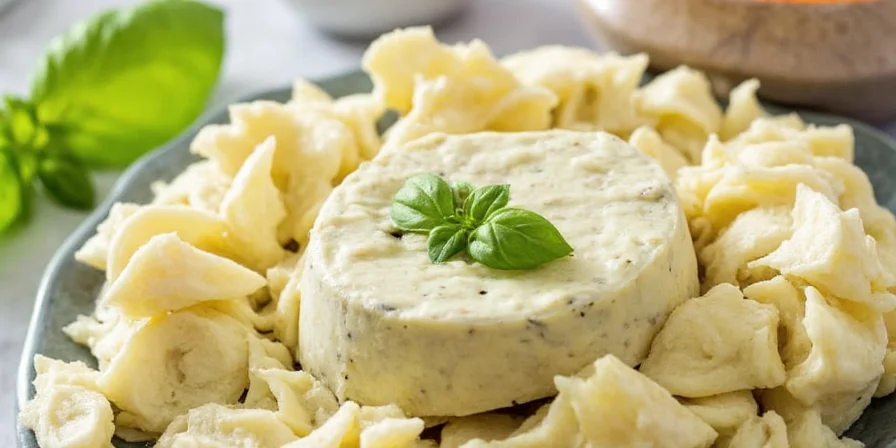
3 Easy Recipes Using Basil Cheese
Try these beginner-friendly applications that work every time:
- 5-Minute Basil Cheese Pasta: Toss 1/4 cup cubed basil cheese with 2 cups hot pasta, 2 tbsp pasta water, and cherry tomatoes.
- Basil Cheese Stuffed Chicken: Spread 1 oz basil cheese on chicken breast, roll up, and bake at 375°F for 25 minutes.
- Instant Caprese Salad: Layer tomato slices, 2-3 thin basil cheese slices, balsamic glaze, and fresh basil.
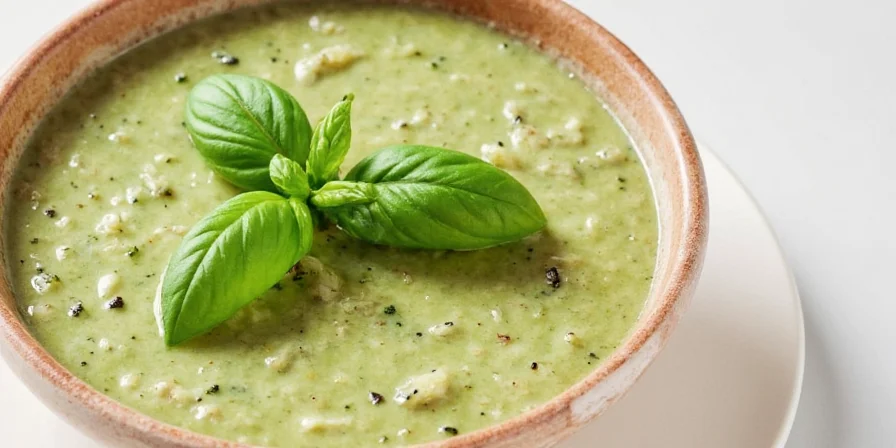
Why Home Cooks Should Keep Basil Cheese Handy
Basil cheese solves the biggest problem with fresh herbs: their flavor disappears quickly. By preserving basil's taste in cheese form, you get consistent herbal flavor without timing dishes perfectly. It's not about being fancy—it's about making everyday cooking more reliable. Keep a small container in your fridge for instant flavor boosts to pasta, chicken, or vegetables with zero extra cooking time.
The best part? You don't need special skills. Just swap regular cheese for basil cheese in any recipe that calls for mozzarella, cream cheese, or soft cheeses. In 30 seconds, your dish goes from basic to restaurant-quality.
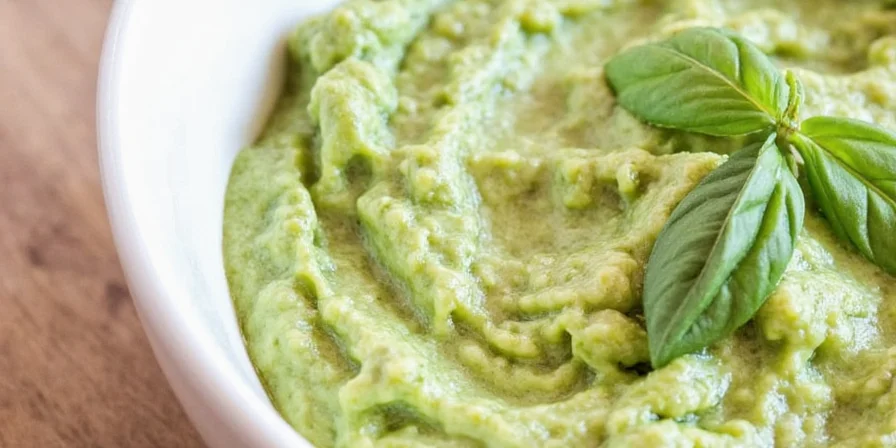
Summary
What you need to know:
- Basil cheese = regular cheese + fresh basil (no cooking required)
- Best uses: cold dishes, finishing touches, room temperature applications
- Store in olive oil for up to 5 days to prevent browning
- Top 3 applications: pasta finishing, chicken stuffing, instant caprese
- Works because cheese fat preserves basil's flavor compounds
Frequently Asked Questions
Can I substitute dried basil in homemade basil cheese?
No—dried basil lacks the volatile oil concentration (linalool, estragole) that creates basil cheese's signature aroma. Fresh basil's moisture content is essential for proper infusion into cheese matrices. Dried versions produce muted, one-dimensional flavor.
Why does my basil cheese turn brown after a few days?
This indicates oxidation of basil's chlorophyll compounds. To prevent browning: 1) Use cheese with higher fat content (fat protects volatile compounds), 2) Store submerged in extra-virgin olive oil, 3) Consume within 5 days. Browning doesn't indicate spoilage but reduces flavor intensity.
Does freezing basil cheese preserve its flavor?
Freezing damages the cellular structure of both basil and cheese, causing separation and muted aromatics. For best results, prepare fresh or refrigerate for immediate use. If necessary, freeze only in oil-based preparations like pesto where texture changes are less noticeable.
How does basil cheese differ from pesto-swirled cheese?
Pesto mixtures contain oil, nuts, and garlic that alter the cheese's protein structure and accelerate oxidation. True basil cheese uses only fresh leaves blended directly into cheese, preserving volatile compounds and creating more integrated flavor release. Pesto versions work better as spreads, while pure basil cheese excels in precise applications like stuffing or layering.

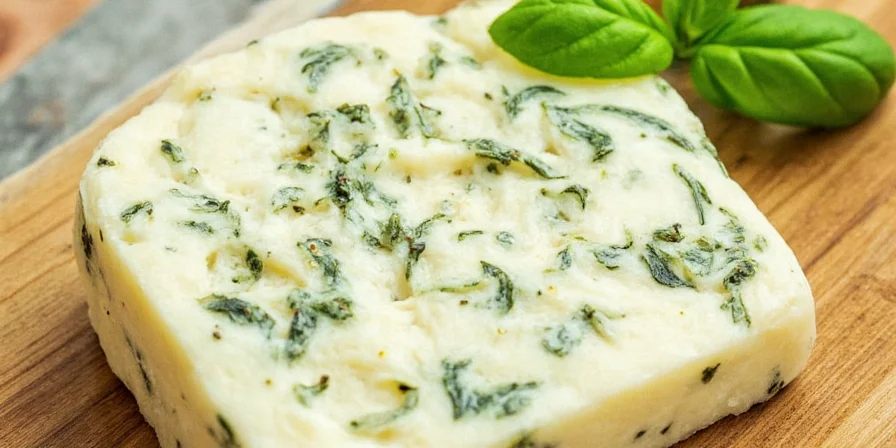









 浙公网安备
33010002000092号
浙公网安备
33010002000092号 浙B2-20120091-4
浙B2-20120091-4